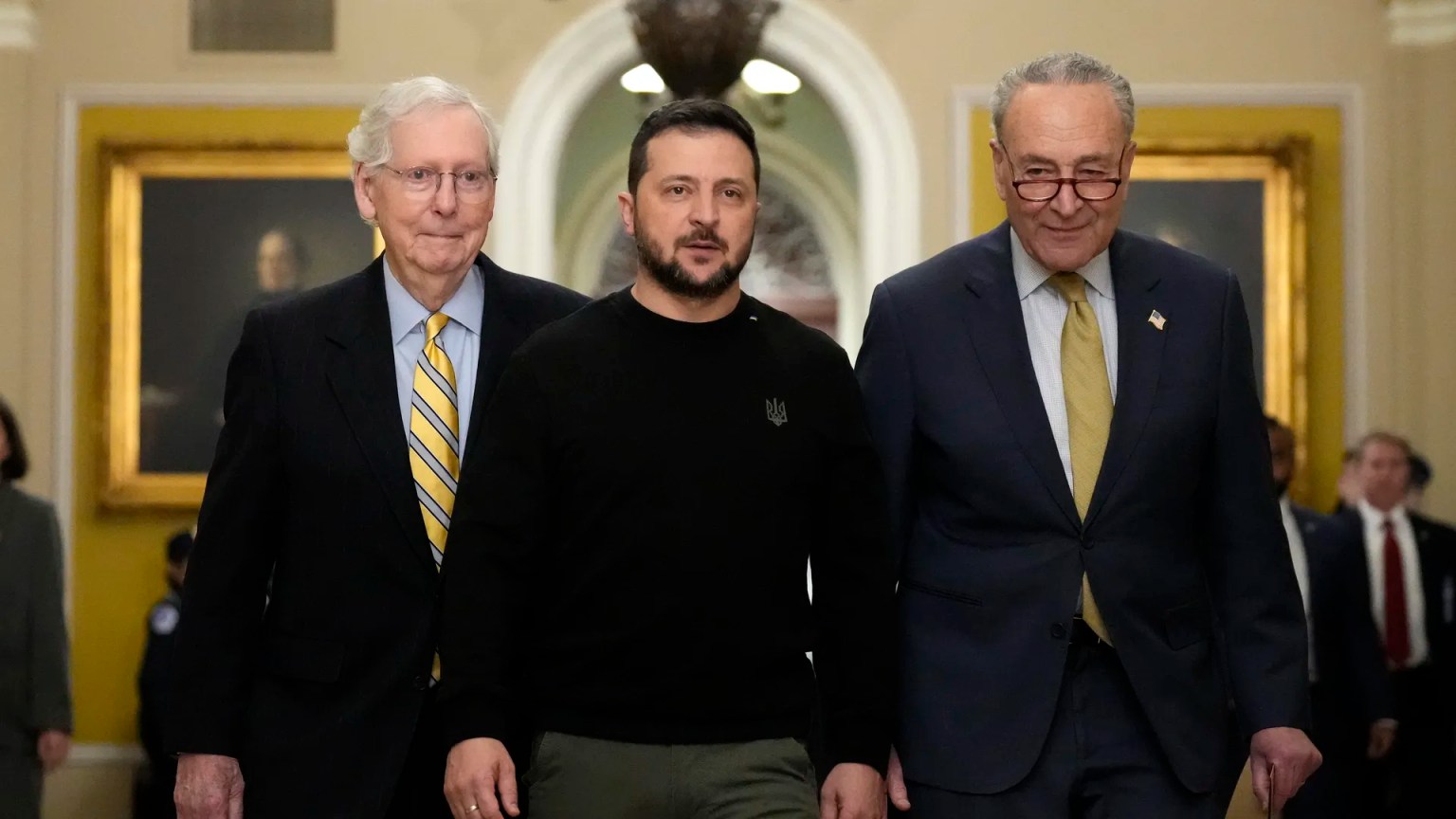Lawmakers from both major political parties, including Senators James Lankford, Krysten Sinema, and Chris Murphy, have been engaged in prolonged negotiations with White House officials concerning the crisis at the southern border. The proposed solution is included within supplemental spending measures. Interestingly, these measures also allocate substantial foreign aid to Ukraine and Israel.
The Biden administration’s initial supplemental request asking for a whopping $100 billion, with only $14 billion earmarked for the border. However, Republicans were quick to demand restrictions on migrant releases into the interior and insisted on regulating parole use. This has led to a seemingly endless cycle of negotiations in search of a compromise.
The proposed agreement could potentially funnel $60 billion towards Ukraine which has Zelenskyy salivating, and another $14 billion to Israel.
Thankfully, its chances of passing through the House are slim at best. House Republicans have dismissed the bill as irrelevant unless it includes key elements from H.R.2, their own border bill – an obvious power play by Senate GOP members which is stalling progress.
Johnson plans to provide Israel with $17. 6 billion in emergency funding next week.
“While the Senate appears poised to finally release the text of their supplemental package after months of behind-closed-doors negotiations, their leadership is aware that by failing to include the House in their negotiations, they have eliminated the ability for swift consideration of any legislation,” Johnson said.
Sunday’s proposed legislation will amount to just over $118 billion, including 50, 000 new visas. The border proposal, which underwent months of negotiation, aims to gain control of an asylum system that has been overwhelmed by a historic influx of migrants at the border. The bill suggests a comprehensive overhaul of the system, incorporating stricter and more efficient enforcement measures.
By the numbers: The package includes $60 billion to support Ukraine, $14 billion for Israel, and $4. 8 billion for the Indo-Pacific. An additional $10 billion is earmarked for humanitarian assistance for civilians in Gaza, the West Bank, Ukraine, and other populations.
A whopping $20 billion of the funds earmarked for Ukraine is intended to restock U.S. military weaponry and equipment. Moreover, as an afterthought, the same amount is to be set aside for deportation-related transportation, shelters, and the recruitment of over 4,000 new asylum officers.
The plan also includes increasing the number of border agents and implementing anti-fentanyl trafficking measures, among other resources deemed ‘necessary’ for border policy changes. It appears that our priorities may be somewhat misplaced in this regard.
In regards to the agreement, President Biden stated that there is still more work to be done in order to finalize it. He emphasized the importance of taking action to secure the border, stating that doing nothing is not an option. Biden acknowledged the effort put forth by his administration and the United States Senate in reaching a bipartisan agreement.
Joe Biden is votescaping America. After Joe’s new voters gain any kind of legal status, Republican states can expect an influx of new voters changing the demographics of American politics. Zelenskyy sees this as the only way the graft can continue without guardrails or serious oversight set up to monitor American tax dollars being tucked away.



